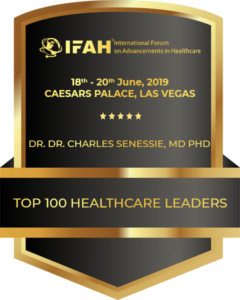A combined team of local and international participants from doctors, nurses and scientists enrolled in AEMRN mobile clinics and served communities in Lusaka and Kenya during the summer months. Volunteers with medical and other necessary experiences operated mobile clinics under the direction of local health care providers, national and international health officials and AEMRN leadership.
The Afro-European Research and Medicine Network (AEMRN) is a non-governmental, not-for-profit organization that works with a strong vision of partnerships to improve the quality of life, particularly the health of people living in resource-limited contexts. The AEMRN network brings together professionals active in education, medicine, engineering, nursing and medical logistics to work together to support those in need. One of AEMRN’s activities involves the management of special mobile clinics.
The concept of medical work camps with mobile clinics involves health professionals who physically descend into communities and provide support and health services. The mobile clinic teaches promotes a healthy lifestyle, and treats. It offers the opportunity to provide much-needed medical care to hard-to-reach areas and to act as an entry point for the provision of specialized services or for training and promotion, as well as an excellent platform for the South-South, North-South and North-North collaboration.
Lusaka, Zambia July 22-27, 2012
A team of 18 local and international participants from the doctor, nurses and scientists ran mobile clinics in towns and villages around Lusaka. 2150 patients, including women, children, the elderly, etc. with various ailments such as respiratory, cardiovascular, gastrointestinal and neurological cases, as well as HIV/AIDS, malaria and minor injuries, came to consult in clinics. Major cases have been referred to tertiary hospitals or larger health facilities for further follow-up or management. AEMRNmobile clinics covered areas on the outskirts of Lusaka, including Kasungula district.
A day was devoted to continuing medical education (CME) and continuing professional development (CPD) facilitated by WHO. There are 153 participants, who came from the Lusaka Ministry of Health, medical and nursing students from the University of Teaching Hospital (UTH), Lusaka, Chreso University as well as other government departments and private practitioners. The training focused on: “WHO Global Influenza Programme (IPIG); Intensive care training and integrated management of adolescent and adult diseases (IMAI); Rapid control and management of serious diseases in resource-limited contexts.” The training programme was chaired by the Vice-Chancellor of Chreso University chaired by the Permanent Secretary of Zambia’s Ministry of Health. Between the presentation were the role-playing games of the audience as well as the community health workers of Chreso University and our international and national participants of AEMRN.
Kenya from July 29 to August 8, 2012
Mobile clinics have been set up near Kitale, Kenya, which has served as a focal point for other surrounding villages to converge and receive health promotion messages, take part in community studies and treatment common ailments. The towns and villages covered were the Kisumu, Kaptanai (near the Ugandan border) and Matisi. 4,100 patients were received by the clinic over a seven-day period.
As in Lusaka, a full day was devoted to Continuing Medical Education (CME) and Continuing Professional Development (CPD) for all stakeholders in the field of health promotion in collaboration with the Alliance for Geneva-based health promotion. There were approximately 137 participants from local government, village chiefs and religious elders, the Ministry of Health and medical workers, including doctors and nurses, nursing women and scientists Nigeria, Cameroon, Uganda, Zimbabwe, Switzerland, the United States, Sierra Leone and NGOs such as the African Medical Research Foundation (AMREF). During the break-up sessions, participants were divided into three groups to discuss: the basics: what should be on the global agenda? How do we communicate? How do we get community voices at the global level? “. The reports of the three groups were presented and discussed in plenary session and will be the basis for subsequent discussions at the Forum on Health Promotion, Geneva, 19-20 November 2012, the annual session of the 2013 WHO World Health Assembly briefing, as well as the Global Conference on Health Promotion in Helsinki in June 2013.








 Who's Online : 3
Who's Online : 3
No comments yet.